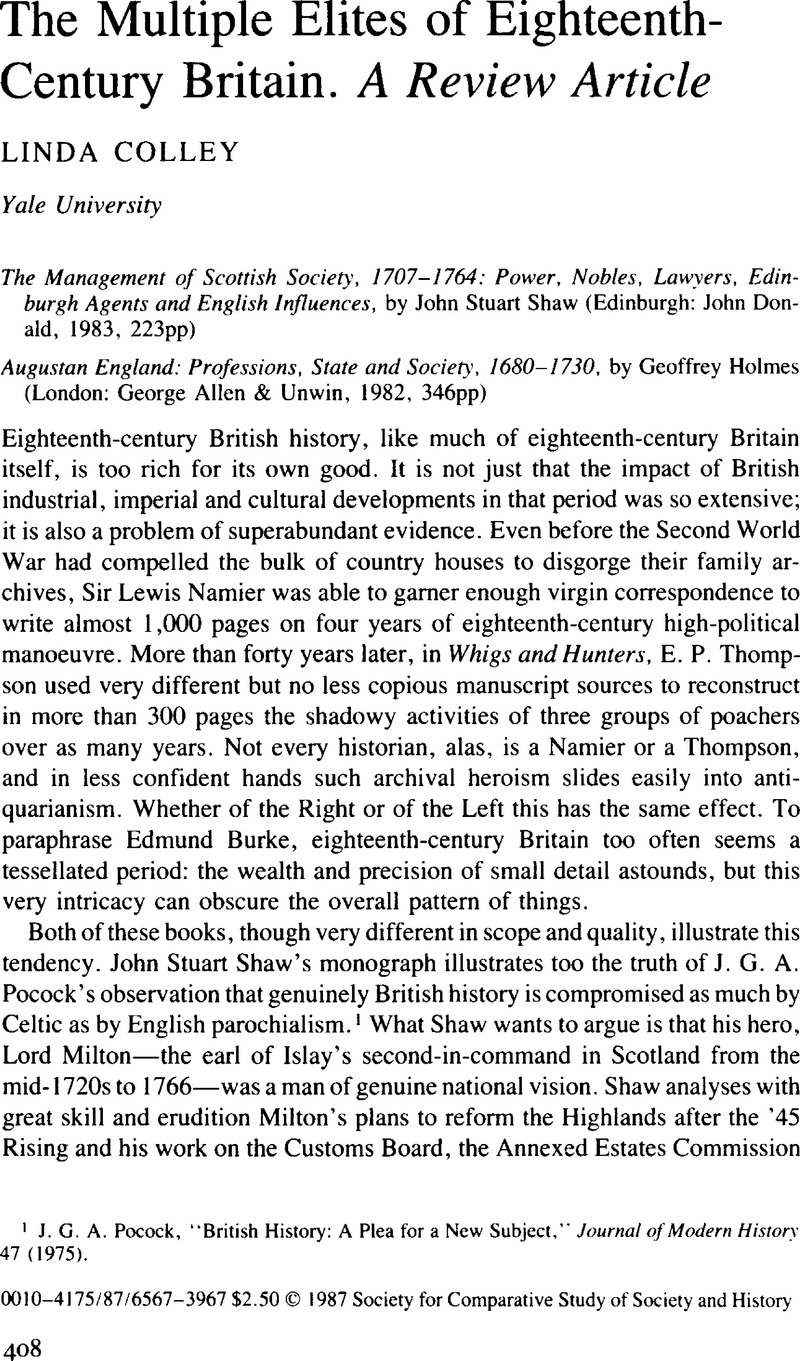Article contents
The Multiple Elites of Eighteenth-Century Britain. A Review Article
Review products
Published online by Cambridge University Press: 03 June 2009
Abstract

Information
- Type
- CSSH Discussion
- Information
- Copyright
- Copyright © Society for the Comparative Study of Society and History 1987
References
1 Pocock, J. G. A., “British History: A Plea for a New Subject,” Journal of Modern History 47(1975Google Scholar).
2 E.g.,Holmes, Geoffrey, British Politics in the Age of Anne (London: 1967Google Scholar); Brewer, John, Party Ideology and Popular Politics at the Accession of George III (Cambridge: 1976CrossRefGoogle Scholar); Colley, Linda, In Defiance of Oligarchy: The Tory Party 1714–60 (Cambridge: 1982CrossRefGoogle Scholar); Bullion, John, “A Great and Necessary Measure”: George Grenville and the Genesis of the Stamp Act (Columbia: 1982Google Scholar). I suspect that Shaw's emphasis on Milton's idealism is in part over-reaction to John Simpson's brutal rendition of Scottish political motivation in “Who Steered the Gravy Train, 1707–1766?“ in Scotland in the Age of Improvement, Phillipson, N. T. and Mitchison, Rosalind, eds. (Edinburgh: 1970Google Scholar).
3 Murdoch, Alexander, ‘The People Above’: Politics and Administration in Mid-Eighteenth Century Scotland (Edinburgh: 1980Google Scholar); Phillipson, N. T., “Lawyers, Landowners, and the Civic Leadership of Post-Union Scotland,” Juridical Review (1976Google Scholar).
4 Thompson, E. P., “Eighteenth-Century English Society: Class Struggle without Class?” Social History, 3 (1978), 142–3CrossRefGoogle Scholar.
5 Brewer, John, McKendrick, Neil, and Plumb, J. H., The Birth of a Consumer Society: The Commercialization of Eighteenth-Century England (London: 1982Google Scholar); Money, John, Experience and Identity: Birmingham and the West Midlands 1760–1800 (Manchester: 1977CrossRefGoogle Scholar).
6 See his essay in Cannon, John, ed., The Whig Ascendancy: Colloquies on Hanoverian England (London: 1981), 1–23Google Scholar.
7 Information from a paper delivered by John Brewer at King's College, Cambridge, in January, 1984.
- 1
- Cited by

